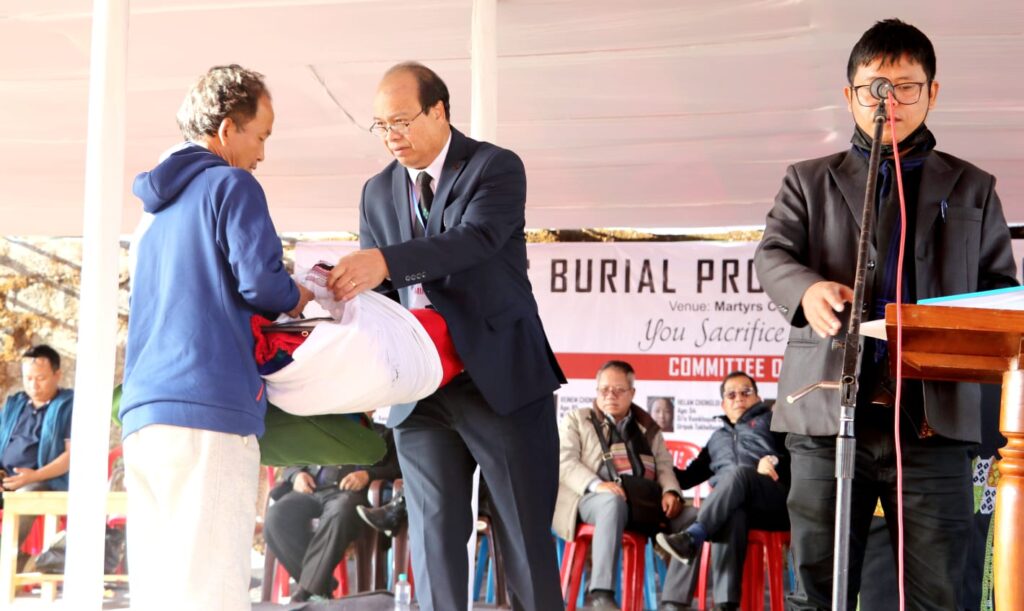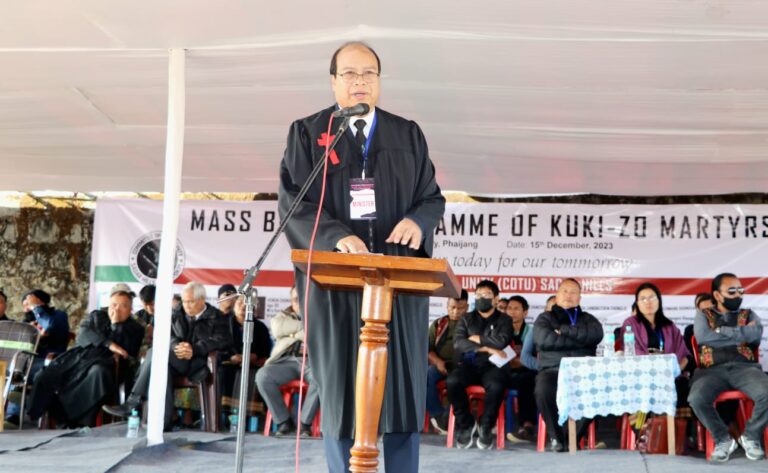#IndiangenocideofChristians
On December 15, 2023, a mass burial ceremony was held for 45 Christian martyrs belonging to the Kuki-Zo tribe in Manipur. Subsequently, on December 20, an additional 87 individuals were laid to rest.
This solemn event transpired following a directive from the Indian Supreme Court, instructing the state government to oversee respectful and dignified burials for those who lost their lives in the ongoing violence between the Meitei (predominantly Hindu) and Kuki-Zo tribes (largely Christian). Read more (here).
In the face of a staggering death toll, Indian authorities have been unsuccessful in quelling the unrest, and the Christian community continues to endure frequent attacks.
According to Rev. Dr. Satkhokai Chongloi, there is a growing concern that some Indian authorities might be complicit in supporting Hindutva (Hindu Nationalism), possibly collaborating with the Hindu Meitei community.
The plight of the Christian community is evident in overcrowded relief camps, accommodating over 50,000 displaced individuals. Many among them harbor apprehensions about returning to their homes and are fervently urging the Indian Government to allocate a new area of land, providing them with the opportunity to rebuild their lives.
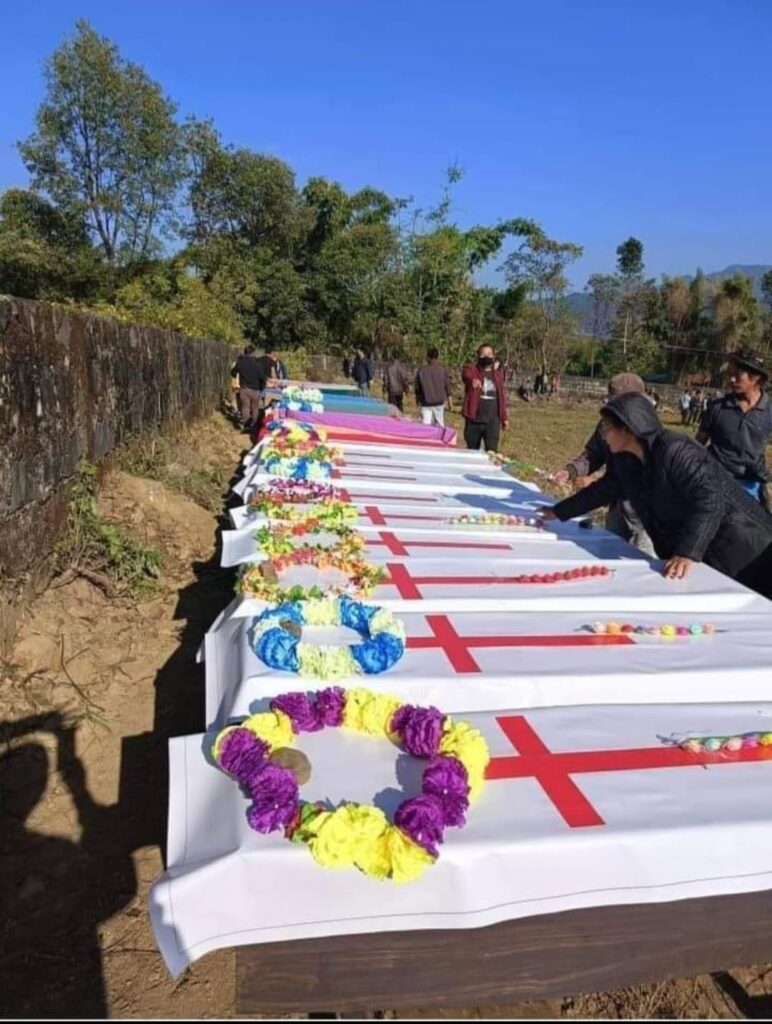
Phaijang, Khangpokpi District, December 15, 2023 — In a poignant ceremony, a mass burial service took place at the Kuki-Zo Martyrs Cemetery, where 45 Christian martyrs were laid to rest, having lost their lives in the ongoing ethnic clashes in Manipur. The ceremony, presided over by Rev. Dr. Satkhokai Chongloi, Principal of Restoration Theological College and recently appointed as Assistant Executive Secretary of Kuki Christian Church Manipur Synod, Imphal Manipur, unfolded as a solemn occasion dedicated to honoring the fallen.
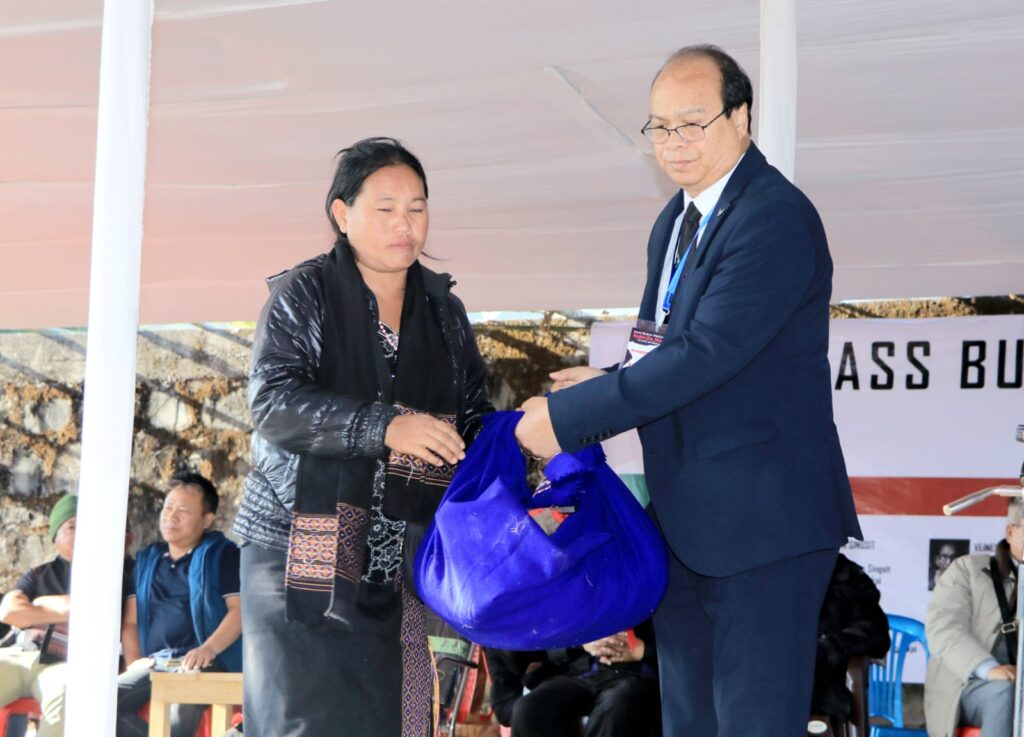
During the service family members of those who had been slain were prayed for an received gifts from the church.
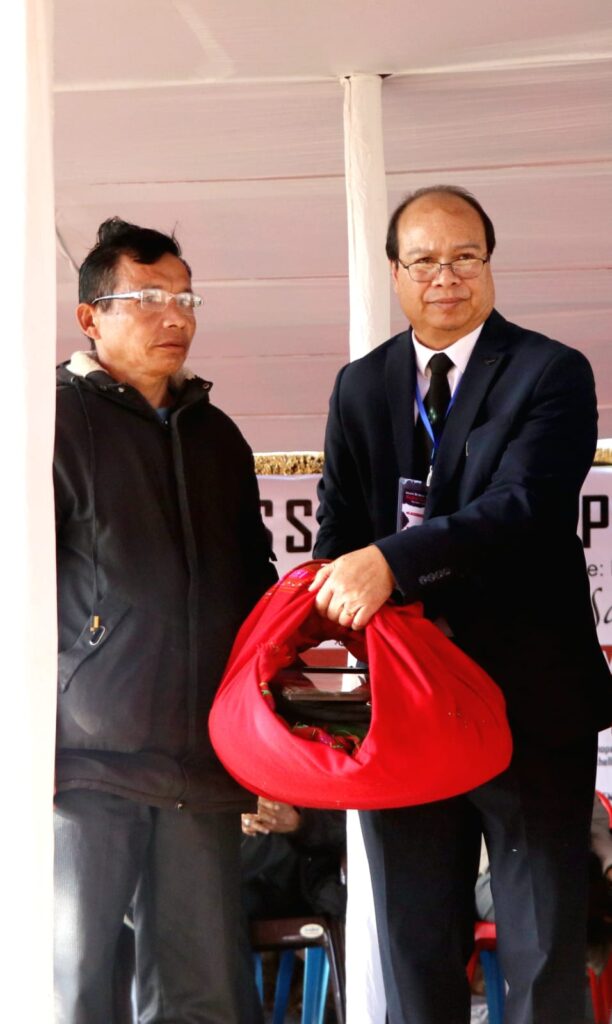
Similarly, on December 20th, in Churachandpur at the Kuki-Zo Martyrs Cemetery in Sekhen, another solemn ceremony saw 87 Kuki-Zo victims find their resting place. Rev. Dr. Thongkhosei Haokip, President of the Kuki Christian Leaders Fellowship, led the event, conducting mass burials with Christian rituals and heartfelt tributes, accompanied by gun salutes from village defense volunteers.
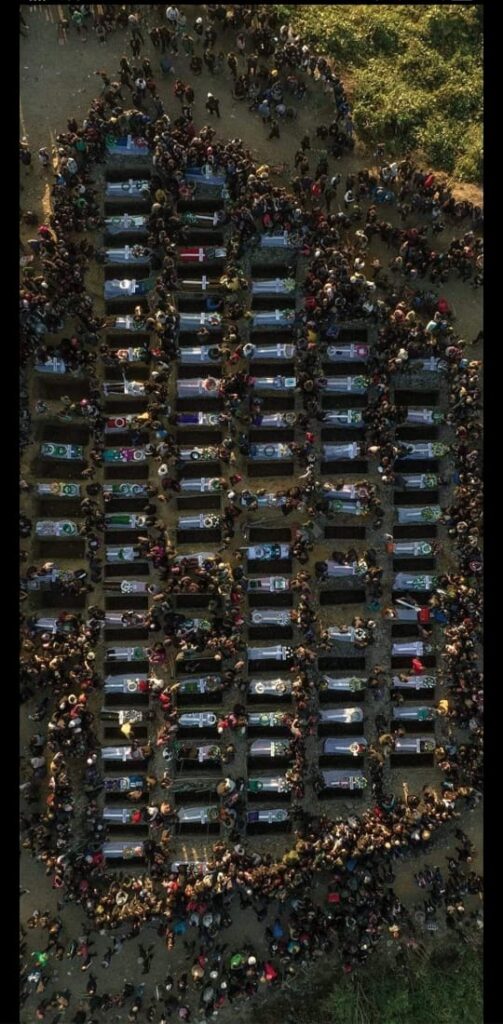
Emotional farewells were bid by families amidst large gatherings—30,000 in Khangpokpi and 20,000 in Churachandpur. The coffins, adorned with traditional shawls and wreaths, were surrounded by mourning Christians. A palpable sense of relief filled the air as the community adhered to customs and rituals, bringing a prolonged wait for families to an end.
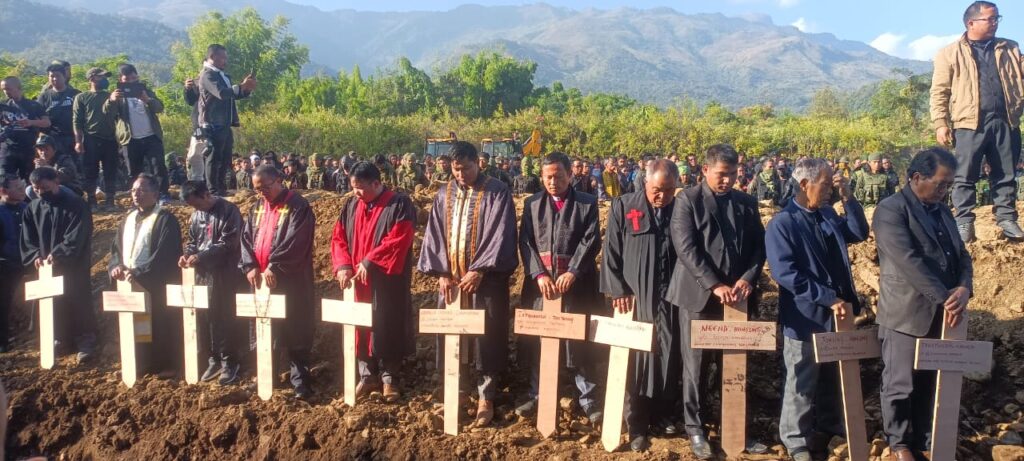
The buried victims, spanning a wide age range from a 70-year-old woman, Domkhohoi Haokip, to a one-month-old baby, reflect the devastating impact of the ongoing conflict. Ngaineikim, the president of the Kuki Women Organisation for Human Rights, expressed the continued pursuit of justice for the fallen and demanded a separate administration for the Kuki-Zo people during the Churachandpur event.
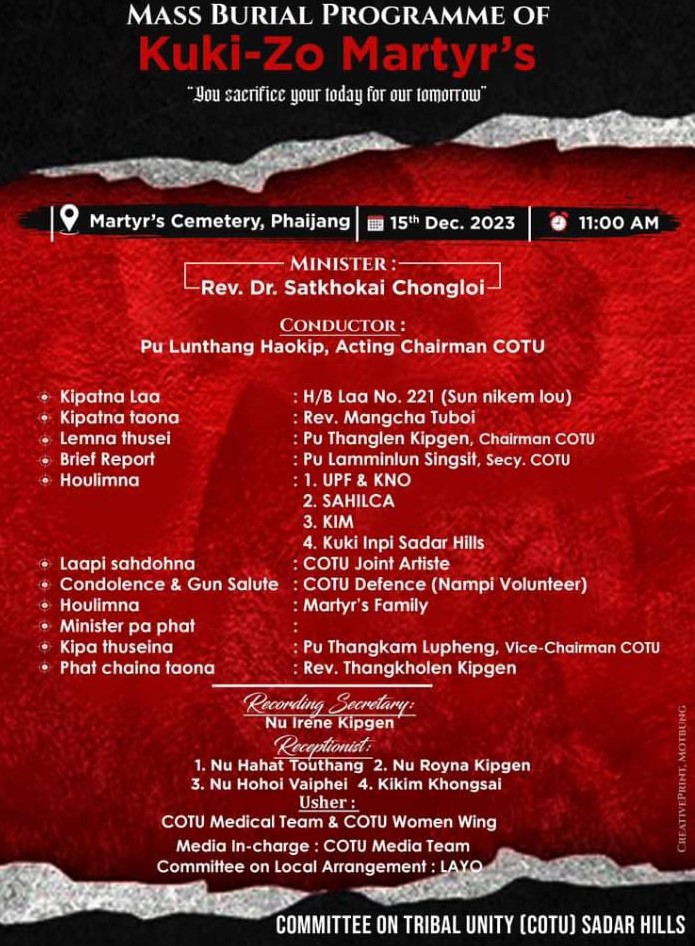
Both ceremonies unfolded under heightened security due to ongoing attacks by Meitei Hindus on their Christian counterparts in the Kuki-Zo tribe, resulting in a district-wide curfew in effect until February 18, 2024. The burials followed a Supreme Court directive to ensure prompt and dignified burials for the victims of the current conflict, dating back to May.
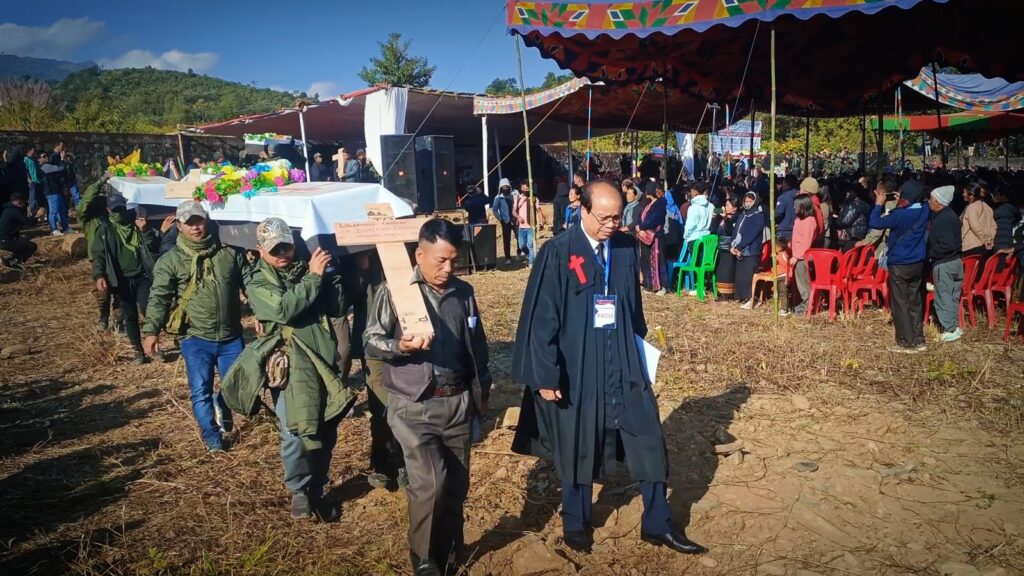
On 28th November, the Supreme Court of India issued a directive for the prompt burial of bodies resulting from the ongoing violence in Manipur, dating back to February. The court underscored that failure to bury the bodies within a week would lead the state to assume responsibility for burial or cremation. The primary objective of this directive was to ensure that the deceased receive dignified and respectful burials.
A panel of retired High Court Judges, appointed by the Supreme Court, expressed concerns about the pressure faced by victims’ relatives from civil society organizations, discouraging them from accepting the bodies. In response to an October 21 report from the committee led by Justice Gita Mittal (retired), the Chief Justice highlighted that 94 bodies remained unclaimed. The committee reported that the next of kin for identified bodies were willing to claim them, but certain civil society organizations were obstructing this process.
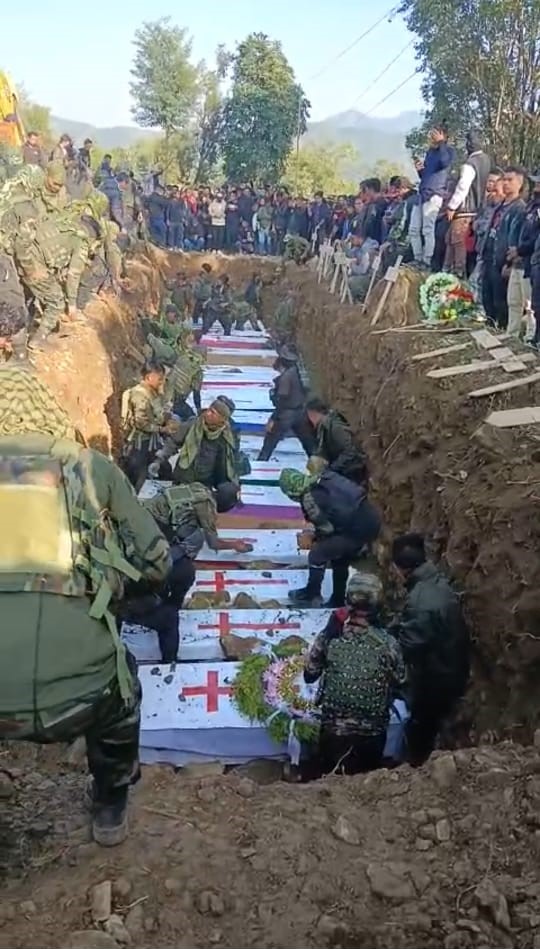
The report additionally highlighted that, despite the state government identifying nine suitable burial sites, some civil society organizations insisted on choosing unsuitable locations for collective burials. This approach posed a potential problem as it had the capacity to escalate tensions between communities in Manipur, impeding the restoration of normalcy.
During the hearing, Senior Advocate Colin Gonsalves, representing specific Kuki outfits, suggested that the report might be slightly outdated. He referred to a recent meeting between tribal communities and the Home Ministry, concluding just the day before. According to his information, there had been a unanimous agreement on both sides regarding the burial location for the bodies. Gonsalves expressed eagerness to proceed with the burial process.
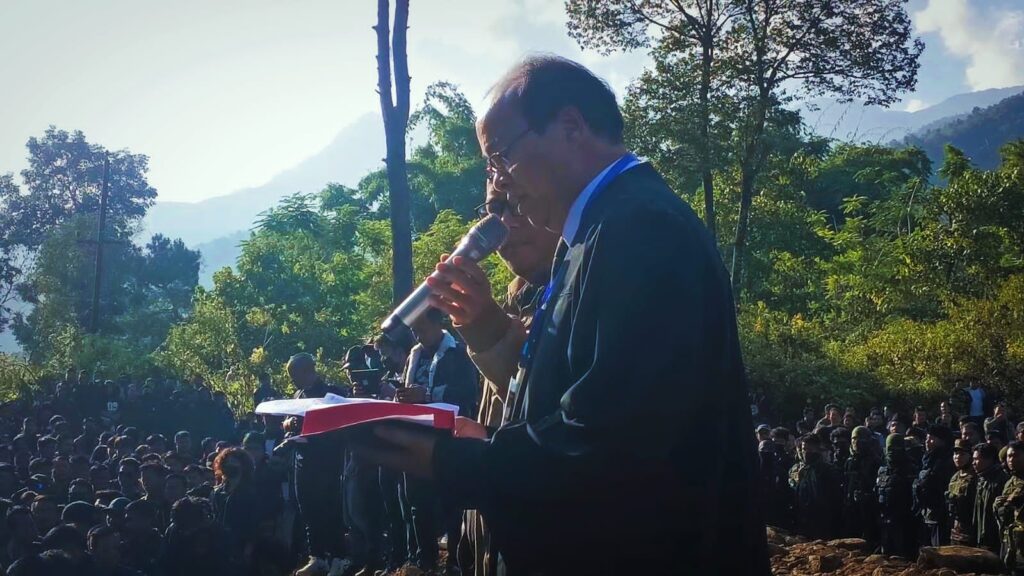
Solicitor General Tushar Mehta, representing both the Centre and the state, asserted that if the families desired to conduct the last rites at any of the nine designated sites, no objections would or could be raised. This statement effectively brought an end to the argument between the Court Judge and Mr. Mehta.
VIDEO: Rev. Dr. Satkhokai Chongloibids a final farewell to the deceased martyrs.
We inquired with Reverend Satkhokai about the community’s decision to opt for a mass burial. He explained, “The decision for a mass burial stemmed from the tragic events of three brutal days of violence, where our brothers and sisters lost their lives. Our community sought to come together in solidarity with grieving families, collectively mourning the loss. Our intention was not only to express joint respect for the departed but also to conduct a Christian service of thanksgiving for lives taken prematurely.”
Reverend Satkhokai further elaborated on the ongoing attacks on Christians, stating, “The assaults by Meitei on Kuki-Zo villages persist, marked by sudden ambushes on Christians without warning. Our response is defensive in nature, aimed at protecting our people and villages against the ethnic cleansing we are facing. We refrain from engaging in targeted attacks; clashes only occur when we defend ourselves.”
“After seven months of relentless attacks, a lack of peace prevails. It appears to me that the Indian Government and the Manipur Provincial Government may be colluding with Hindu Meitei extremists. I make this assertion because the response from police and armed forces is often delayed, if they respond at all. Additionally, in Imphal, radicalized Meitei Leepun and Erambai Tengol looted over 6000 sophisticated guns and more than 500,000 rounds of ammunition. Numerous eyewitnesses claim that the equipment was not stolen but rather handed over to these malicious militias.”
